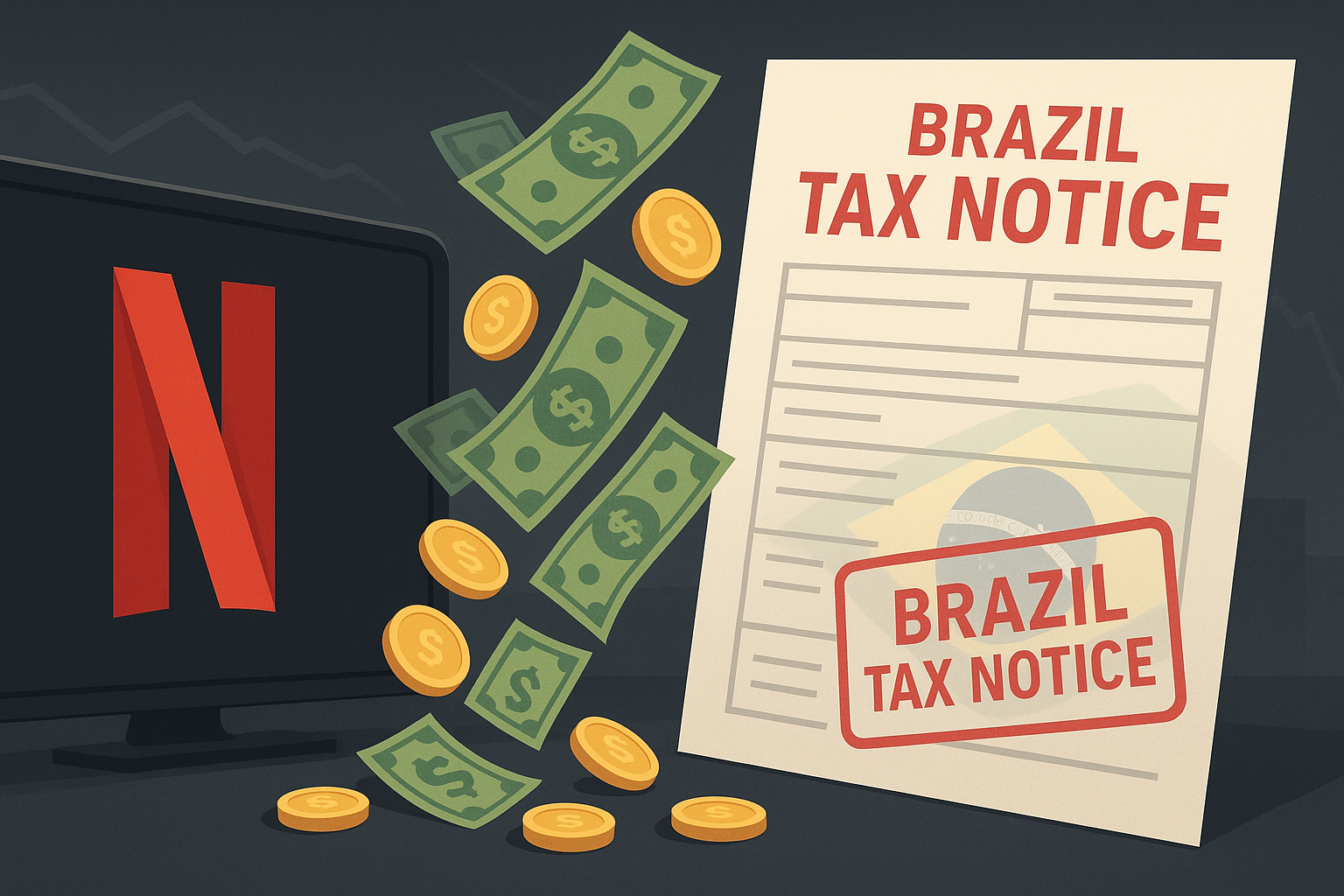So Netflix shares took a dive yesterday—down 7% after hours—on what can only be described as the world's most expensive Samba lesson. The streaming giant missed earnings estimates, blaming an "ongoing dispute with Brazilian tax authorities" that apparently wasn't penciled into their quarterly forecast.
I mean, who among us hasn't forgotten about a potentially material tax dispute with a major emerging market? These things happen. It's like finding that parking ticket from six months ago in your glove compartment, except the ticket is worth millions and your car is a $200 billion company.
The company posted $5.87 per share in earnings versus the $6.97 analysts expected. Revenue hit the mark at $11.51 billion, which in any other quarter would be cause for champagne. But when your margin drops to 28% instead of your forecasted 31.5% because of a tax issue you apparently forgot was looming, investors tend to get a bit twitchy.
What's fascinating here is Netflix's casual dismissal of the whole affair: "We don't expect this matter to have a material impact on future results." Translation: "Nothing to see here, folks! Just a little $300+ million oopsie that won't happen again, pinky promise."
There's a model I think about when companies face unexpected tax bills in international markets. Call it the "Surprise Sovereignty Tax" framework. It works like this: Companies operate in global markets as if tax regimes are stable and predictable, until suddenly they aren't. The underlying assumption of borderless digital services meets the reality that governments have both borders and budget shortfalls.
Netflix has been riding high lately, with its password-sharing crackdown and advertising tier finally delivering the subscriber and revenue growth Wall Street had been craving. The company that once sent DVDs in red envelopes has transformed into an entertainment behemoth that both creates and delivers premium content. And with that transformation has come increasing scrutiny from tax authorities worldwide who are still figuring out exactly how to classify—and tax—streaming services.
Brazil isn't the first country to get into tax disputes with digital giants, and it certainly won't be the last. The fundamental tension is that companies like Netflix operate virtual businesses that can serve customers from anywhere, while tax authorities are stubbornly attached to physical jurisdiction and tangible presence. It's like trying to catch smoke with a butterfly net.
What makes this particularly interesting is the timing. Netflix dropping this tax bomb in an otherwise solid quarter suggests either some aggressive accounting recognition or a genuine surprise in the negotiation process. Neither explanation is particularly comforting to investors who thought they were buying into a maturing, predictable growth company.
The market reaction—a 7% drop—seems proportional not just to the earnings miss itself but to the surprise factor. Wall Street can handle bad news; what it can't stomach is unexpected bad news. An international tax dispute doesn't just appear overnight like a surprise character death in "Stranger Things." These things develop over quarters, if not years.
Looking ahead, this raises questions about Netflix's tax governance and international risk management. Are there other jurisdictions where similar disputes are brewing? Is this a one-off or the beginning of a trend as more countries look to capture tax revenue from streaming services?
For investors, the key question becomes whether this is a temporary hiccup or a sign of structural issues in Netflix's international tax planning. The company's reassurance that this won't materially affect future results suggests the former, but then again, they didn't see this coming in their forecast either.
The broader lesson here might be that as digital service companies mature, the complexity of their international tax exposure grows accordingly. The days of tech companies gliding above territorial tax regimes are waning as governments worldwide become more sophisticated in their approaches to digital taxation.
In the meantime, Netflix shareholders are learning that sometimes the most suspenseful dramas aren't on the platform—they're in the quarterly earnings reports.
